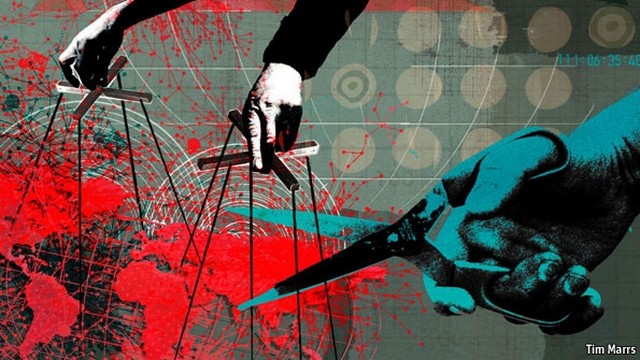By Countercurrents
“Brazil believes that the governing of the internet should be multi-sector, democratic and transparent. We consider the multilateral model to be the best way to govern it,” said Dilma Rousseff, the Brazilian president.
Dilma Rousseff was speaking at the beginning of a global conference in Sao Paulo on governing a safer, less US centered internet.
She convened the two day meeting following revelations that she and other world leaders were spied on by the US National Security Agency.
Rousseff set the tone of the conference by signing a new bill into law safeguarding the rights of Internet users.
Government officials, industry executives, academics as well as the founder of Thought Works and promoter of the software of open code, Roy Singham, Spanish sociologist Manuel Castells and Tim Berners-Lee, considered the father of the web attended the conference.
In the conference, the inventor of the World Wide Web said: “Net neutrality means keeping the net free from discrimination, be it commercial or political. The innovative explosion, which happened across the net over the last 25 years has happened only because the net has been neutral.”
It should be mentioned that the US president Barack Obama has decided to take control away from ICANN, a California-based non-profit organization that has until now coordinated internet domains or addresses.
A new international body that has yet to be decided on will now carry out this role as of September 2015.
The two-day meeting to establish a global internet governance agreement, Net-Mundial, has concluded on April 24, 2014 in Brazil.
The meeting was initiated in the backdrop of NSA, an intelligence and surveillance organization of the US, leaks made by Edward Snowden. The leaked NSA documents show massive surveillance of the world population including heads of states and governments. Rousseff was one of the world leaders under the surveillance years of NSA.
The meeting was called as a result of a speech by Brazilian president Dilma Rousseff at the UN General Assembly, in which she denounced US cyber espionage and demanded the creation of an Internet regulatory framework.
Called by the Brazilian government last year, Gilberto Carvalho, secretary general of the presidency, invited interested parties to discuss the direction of internet in Brazil and the world in this new democratic digital era.
The goal of the meeting was to develop ideas and generate discussion on the importance of internet rights, as well as seeking agreement on rules for the use of cyberspace, said Carvalho.
The agenda for the two day exchange included the development of a document to describe principles for governance and use of internet in Brazil, said the president of the Brazilian Internet Steering Committee Demi Getschko.
The meeting condemned espionage on the worldwide web.
The delegates worked toward advancing multi-sector internet governance, and its development without hegemonic control.
The essential goal was agreement on a resolution to limit United States dominance in the administration of cyberspace.
According to Getschko, the idea was to promote a Universal Declaration on Internet Human Rights, which should include principles including freedom of expression, privacy, transparency and collective governance.
Internet Constitution
Ahead of the Net Mundial conference in Sao Paulo, Brazil’s Senate has unanimously adopted a bill which guarantees online privacy of Brazilian users and enshrines equal access to the global network.
The bill known as the “Internet constitution” or Marco Civil was first introduced in the wake of the NSA spying scandal and has now been signed into law by Dilma Rousseff.
Rousseff presented the law at the Net Mundial Internet.
The bill promotes freedom of information, making service providers not liable for content published by their users, but instead forcing the companies to obey court orders to remove any offensive material.
The principle of neutrality, calling on providers to grant equal access to service without charging higher rates for greater bandwidth use is also promoted. The legislation also limits the gathering and use of metadata on Internet users in Brazil.
Approval of the Senate was assured after the government dropped a provision in the legislature requiring Internet companies such as Twitter and Facebook to store data on Brazilian users at home.
The final version bill states that companies collecting data on Brazilian accounts must obey Brazilian data protection laws even if the data is collected and stored on servers abroad.
NSA was also involved on spying on Brazil’s strategic business sector, particularly on a state-run oil company Petrobras. In response to US spying, Rousseff canceled a state visit to Washington in October and called on UN, together with Germany, to adopt a UN resolution guaranteeing internet freedoms.
The event is not expected to result in any binding policy decisions, but Almeida said it will facilitate a debate that will “sow the seeds” for future reforms of internet governance.
27 April, 2014
Countercurrents.org

